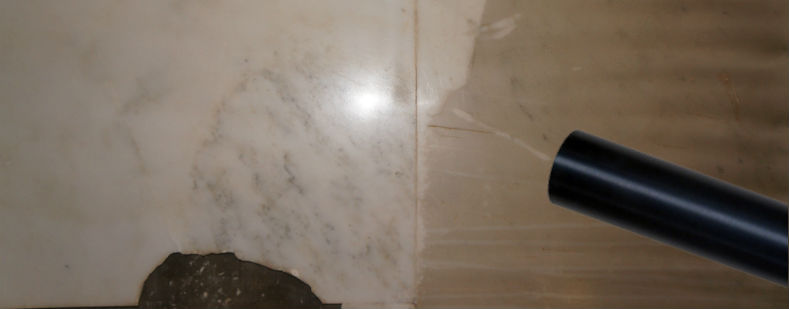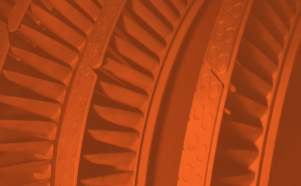Marble Restoration is a task frequently faced by masonry and historic restoration contractors. Marble has been used in buildings and structures for millennia dating as far back as the ancient Greeks in the 7th century BCE. Marble mining remains a global industry with quarries spanning across six continents. As marble has been used for centuries as a building material, many buildings and structures around the world contain marble that is showing its age with discoloration and staining.
Marble stains and scratches easily due to its soft, porous nature. Unlike harder stone like granite, marble contaminants typically leach below the surface. Soot, grime and residue can seep into the stone discoloring not only the visible surface marble but also the layers of marble below it.
Marble restoration methods are chosen based on the severity of the damage. While some surface staining can be removed using chemical methods, the only way to remove below-surface staining is through a process known as “Micro-Abrasion.” Micro-abrasion allows for the surgical removal of the outer layers of marble. This process winds back the arms of time, revealing new layers of the original marble underneath the soiled crust.
In the above example, Sponge-Jet was used to clean and brighten marble that had lost its brilliance over the years. Sponge Media’s unique low dust properties increased work area visibility, which allowed the worker to see exactly what he was doing, limiting surface dwell time and increasing productivity.
Is Travertine the same as Marble?
No. While both materials come from limestone, they are considered two different kinds of stone. Travertine is sometimes referred to as tumbled marble or travertine marble. Similar to marble, travertine is highly susceptible to staining from its environment. Like marble, environmental contaminants often penetrate beyond the surface level. Travertine restoration with Sponge Media is very similar to marble restoration. As a restoration contractor cleans the stone, contaminants are stripped away, revealing clean stone below the surface.
Sponge-Jet’s surgical blast-cleaning process was used to remove heavy staining from travertine in the Duluth (Minnesota) Courthouse. The staining was attributed to years of cigarette smoke inside the building, microscopic soot from heating systems, and various human contact that discolored the stone. The Duluth Courthouse travertine restoration project is now complete, and is visible for the public.








